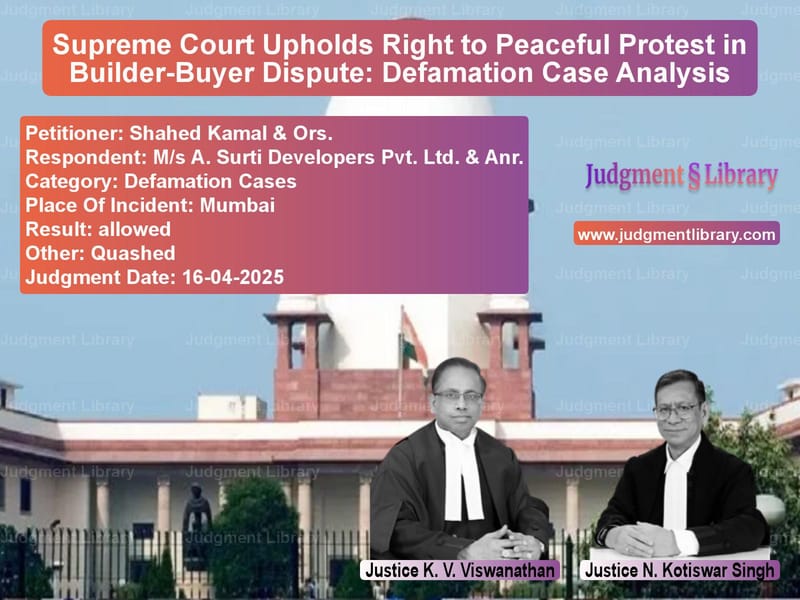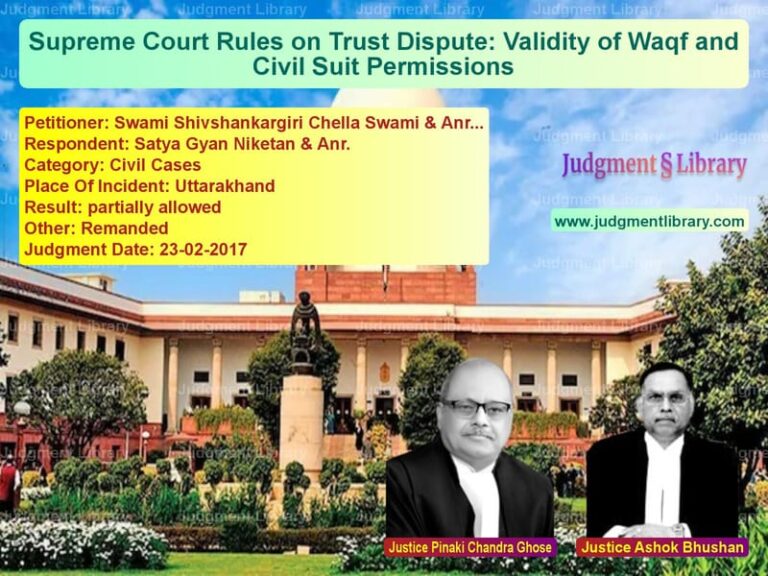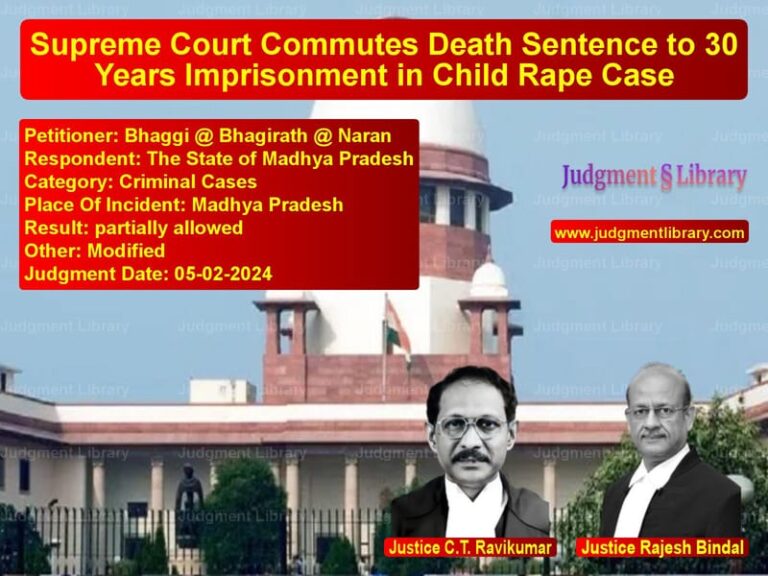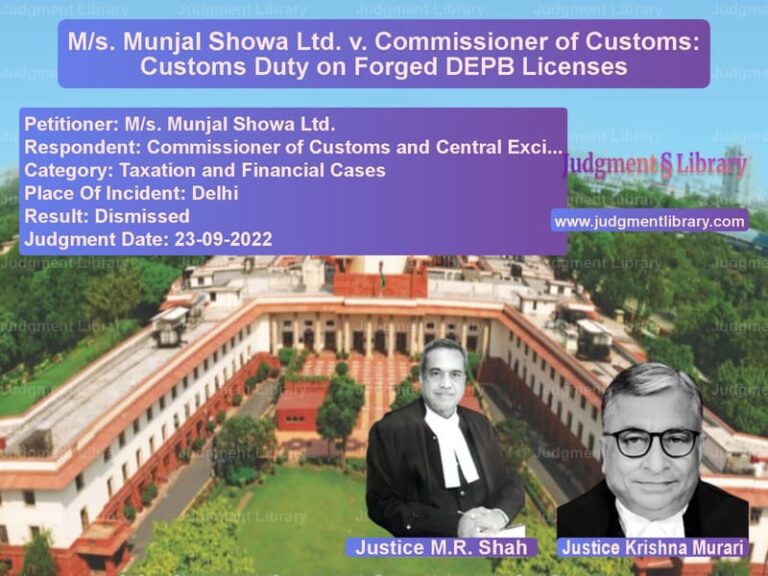Supreme Court Upholds Right to Peaceful Protest in Builder-Buyer Dispute: Defamation Case Analysis
The Supreme Court of India recently delivered a landmark judgment in Shahed Kamal & Ors. vs. M/s A. Surti Developers Pvt. Ltd. & Anr., addressing the delicate balance between the right to protest and allegations of criminal defamation in builder-buyer disputes. This case stemmed from homebuyers erecting protest banners highlighting grievances against their developer, which led to defamation charges under Section 500 IPC.
The dispute began when homebuyers in a Mumbai housing project erected banners in 2015 listing their complaints about construction defects, maintenance issues, and alleged non-cooperation from the builder. The developer filed a criminal defamation complaint, which was upheld by lower courts before reaching the Supreme Court. The key question was whether such protest banners constituted defamation or fell within protected speech under Exception 9 to Section 499 IPC.
Arguments of the Appellants (Homebuyers):
The homebuyers’ counsel argued that the banners merely stated factual grievances in temperate language without any abusive or defamatory content. They emphasized: “the banner only highlights the factual grievances of defective and unfulfilled works left unattended by the respondent” and that they were exercising their fundamental right to freedom of speech under Article 19(1)(a). The appellants also pointed to pending civil litigation regarding the same issues.
Arguments of the Respondent (Developer):
The developer maintained that the banners were a calculated campaign to damage their reputation, arguing: “the banners have adversely affected and damaged the reputation of the complainant and have been put up with full knowledge that they are false and frivolous.” They contended that the ingredients of Section 499 IPC were fully satisfied and that no civil proceedings had been initiated when the banners were erected.
Supreme Court’s Analysis:
The Court conducted a thorough examination of defamation law, particularly Exception 9 to Section 499 IPC which protects imputations made in good faith for protection of one’s interests. Justice Viswanathan observed: “Language is the vehicle through which thoughts are conveyed. Had the appellants exceeded their privilege in erecting the banner? We do not think so.”
The judgment emphasized several key aspects:
1. Nature of Language Used: The Court noted “there is no foul or intemperate language employed against the respondent” and that the banners used “mild and temperate language” to list perceived grievances.
2. Business Relationship Context: The Court recognized that “in a business relationship like that of a builder and homebuyer, certain allowances in the use of phraseology in communication should be provided as long as the deployment of the phraseology in question is based on good faith.”
3. Right to Protest: Quoting earlier precedents, the Court held that “the right to dissent in a legitimate and lawful manner is an integral part of the rights guaranteed under Article 19(1)(a)” and that “an opportunity to peacefully protest is an essential part of democracy.”
Read also: https://judgmentlibrary.com/supreme-court-quashes-fir-against-college-romance-creators-under-it-act/
4. Good Faith Protection: The Court applied Exception 9 to Section 499 IPC, finding that “to protect their legitimate interests and the interest of the other homeowners and without any malice and in good faith the erection of the banner was done.”
The Court warned against misuse of defamation laws, stating: “Sanctioning such prosecutions will…tantamount to using the law in the manner as to create a chilling effect on free speech.” It distinguished between legitimate protest and defamation, noting that the homebuyers “could not have said anything less in the poster/banner as they believed that this was rightful and legitimate to highlight their grievances.”
Conclusion:
The Supreme Court allowed the appeal and quashed the criminal proceedings, holding that the protest banners fell within protected speech under Exception 9 to Section 499 IPC and constituted a legitimate exercise of constitutional rights. The judgment reinforces citizens’ rights to peaceful protest while providing important guidance on the boundaries between legitimate grievance articulation and defamation.
Petitioner Name: Shahed Kamal & Ors..Respondent Name: M/s A. Surti Developers Pvt. Ltd. & Anr..Judgment By: Justice K. V. Viswanathan, Justice N. Kotiswar Singh.Place Of Incident: Mumbai.Judgment Date: 16-04-2025.Result: allowed.
Don’t miss out on the full details! Download the complete judgment in PDF format below and gain valuable insights instantly!
Download Judgment: shahed-kamal-&-ors.-vs-ms-a.-surti-develop-supreme-court-of-india-judgment-dated-16-04-2025.pdf
Directly Download Judgment: Directly download this Judgment
See all petitions in Civil Defamation
See all petitions in Criminal Defamation
See all petitions in Property Disputes
See all petitions in Consumer Rights
See all petitions in Contract Disputes
See all petitions in Judgment by K.V. Viswanathan
See all petitions in Judgment by N. Kotiswar Singh
See all petitions in allowed
See all petitions in Quashed
See all petitions in supreme court of India judgments April 2025
See all petitions in 2025 judgments
See all posts in Defamation Cases Category
See all allowed petitions in Defamation Cases Category
See all Dismissed petitions in Defamation Cases Category
See all partially allowed petitions in Defamation Cases Category







